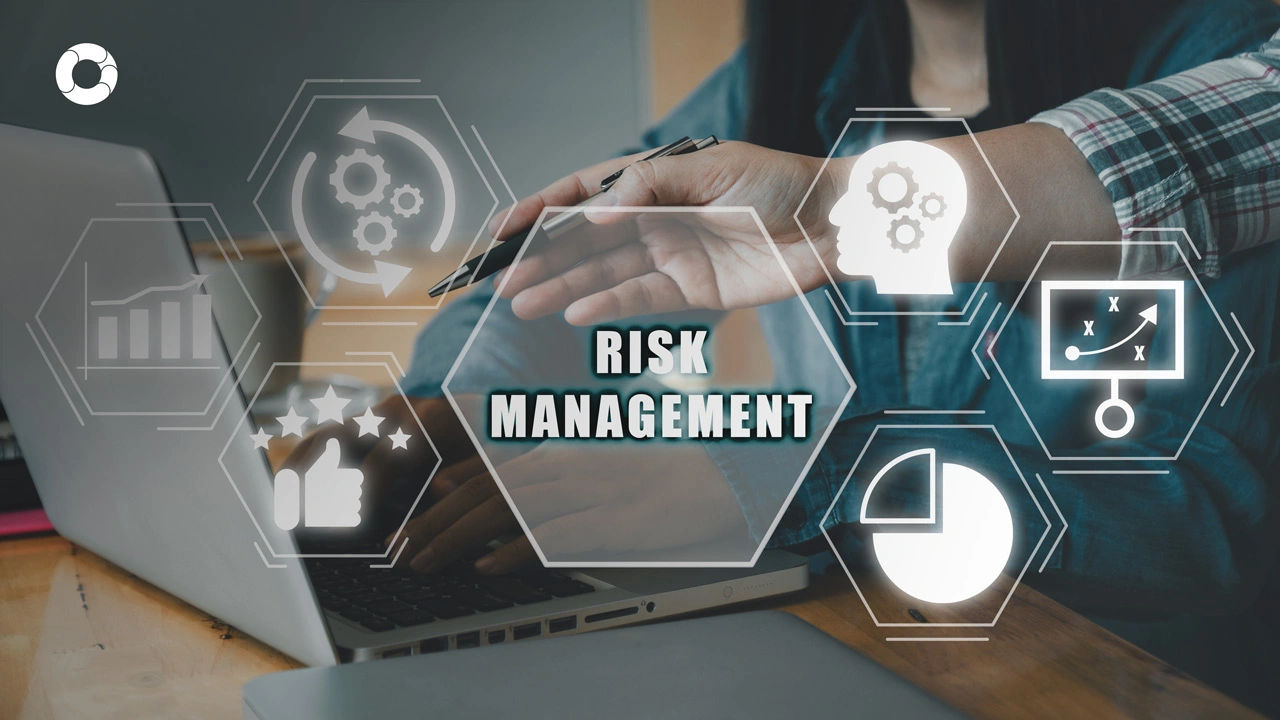5 tips for avoiding financial fraud

Money is the main concern of any company. That's why avoiding financial risks should not only be a priority for the banking sector. Learn 5 tips to prevent them.
Managing a company's finances is a critical task that requires vigilance and strategic oversight. Money is the lifeblood of any organization, and ensuring its protection against financial risks is essential—not just for the banking sector, but for every industry. Whether you’re running a small business or a large corporation, the threat of fraud, financial risk, and operational risks are ever-present challenges that must be addressed to maintain the organization’s stability and growth.
Preventing financial risks should be a top priority for companies of all sizes. Financial mismanagement, fraud, and operational inefficiencies can severely impact a company’s profitability and reputation. Therefore, adopting a proactive approach to financial risk management is vital. This involves implementing robust internal controls, conducting regular audits, monitoring financial activities, and leveraging advanced technologies to detect and prevent potential risks before they escalate.
One of the first steps in preventing financial risks is understanding that these risks are not limited to any particular sector. Every company, regardless of its industry, must be aware of the financial dangers that can arise from various sources, including poor financial controls, lack of oversight, or external threats such as cyber-attacks. By recognizing these potential risks, companies can take the necessary precautions to safeguard their financial health.
A comprehensive risk management strategy is essential for identifying, assessing, and mitigating financial risks. This strategy should include clear guidelines for financial transactions, strong oversight of financial processes, and regular reviews of financial policies. Additionally, having a dedicated compliance team ensures that all financial activities adhere to industry standards and regulations, further reducing the risk of fraud and financial mismanagement.
Technology plays a crucial role in financial risk management. Today, companies have access to advanced financial management software that can automate processes, monitor transactions, and generate real-time reports. These tools help organizations maintain accurate financial records, detect irregularities early, and ensure compliance with financial regulations. By integrating technology into financial management, companies can enhance their ability to prevent and respond to financial risks effectively.
Another critical aspect of financial risk management is the human factor. Ensuring that the finance team is well-trained, trustworthy, and closely monitored is key to preventing internal fraud and errors. Regular training and assessments help keep the team updated on the latest financial practices and risks, enabling them to perform their duties effectively. Additionally, clear communication and collaboration between the finance team and other departments can help identify potential risks and address them promptly.
1. Conduct Thorough Audits of Money-Related Processes
Understanding every aspect of your company’s business processes is not just necessary; it is crucial, especially when it comes to financial transactions. Regular audits of these processes are the first line of defense against fraud and financial risk. By tracking every financial transaction, movement, and exchange, your organization gains a clear overview of how funds are managed and where potential vulnerabilities may lie. This thorough understanding allows you to identify weak points that could be manipulated for fraudulent purposes and take proactive measures to prevent such incidents.
Audits should be detailed and frequent, ensuring that all aspects of financial management are scrutinized. This includes verifying the accuracy of financial statements, ensuring compliance with internal controls, and examining the integrity of data within financial systems. By maintaining a rigorous auditing schedule, you can detect irregularities early and address them before they escalate into significant issues.
2. Monitor the Personnel Handling Company Finances
Equally important as understanding financial processes is knowing who is responsible for managing your company’s money. The risk of fraud increases when the wrong individuals are given control over financial transactions. It is essential to thoroughly vet the employees involved in these processes and monitor their activities closely.
Certain individuals may be more prone to errors or even deliberate misconduct, making it crucial to evaluate the profiles of those handling finances carefully. Implementing background checks, regular performance evaluations, and strict oversight can help ensure that only trustworthy and competent individuals are in positions of financial responsibility. By keeping a close eye on the finance team, you reduce the likelihood of fraudulent activities and ensure that financial operations are conducted with integrity.
3. Understand the Financial Management System
Financial fraud often occurs when record-keeping is inadequate or when financial activities are not rigorously supervised. A deep understanding of your company’s financial management system is essential for preventing such risks. This system should provide managers with easy access to financial records, allowing them to review and verify transactions regularly.
A robust financial management system should include features that facilitate transparency, such as detailed tracking of all financial activities, automated alerts for unusual transactions, and comprehensive reporting capabilities. By leveraging these tools, managers can quickly identify discrepancies and address potential fraud or financial risk before they become significant problems.
4. Regularly Request Management Reports
To minimize the risk of fraud and financial mismanagement, it is crucial to request detailed management reports regularly. These reports should cover costs, expenses, revenues, and any other financial activities over a specific period. Conducting this review on a monthly basis, or more frequently if necessary, allows you to keep a close eye on your company’s financial health.
During these reviews, it is important to adopt a critical approach, looking for any signs of financial risk or irregularities that could indicate fraudulent activities. If you lack expertise in financial analysis, consider hiring a compliance professional to assist with this process. Even small discrepancies in financial reports can have significant implications, so it’s essential to address them promptly and effectively.
5. Leverage Technology as an Ally
In today’s digital age, technology is an indispensable tool for managing financial risk and operational risks. Advanced IT systems can automate many aspects of financial management, making it easier to audit processes, detect fraud, and manage risks comprehensively. These systems offer features such as real-time monitoring of financial transactions, automated risk assessments, and integration of financial data across all departments.
One of the key benefits of using technology in risk management is the ability to generate detailed and accurate reports on potential risks. These reports can help you identify areas of concern and assign responsibilities for addressing them. Additionally, risk management software can enhance your organization’s ability to monitor non-financial risks, such as operational inefficiencies or compliance issues.
For example, with tools like Pirani Risk, companies can effectively manage Corporate Governance processes by identifying, measuring, controlling, and monitoring risks on a single platform. This integrated approach ensures full traceability of risk events, providing valuable insights into what has happened and what could happen in the future.
Conclusion: Strengthening Financial and Operational Resilience
Implementing these strategies can significantly strengthen your company’s resilience against fraud, financial risk, and operational risks. By conducting thorough audits, monitoring personnel, understanding financial systems, regularly reviewing management reports, and leveraging advanced technology, your organization can create a robust defense against potential threats.
Incorporating these practices into your company’s routine operations not only protects your financial assets but also enhances overall operational efficiency. A proactive approach to risk management ensures that your company is better prepared to face challenges, maintain regulatory compliance, and achieve long-term success.
By prioritizing these strategies, your organization can build a culture of integrity, transparency, and accountability. This not only reduces the likelihood of fraud and financial mismanagement but also fosters trust among stakeholders, employees, and customers. In today’s competitive business environment, where financial risk and operational risks are ever-present, a strong commitment to these principles is essential for sustaining growth and maintaining a positive reputation in the market.
What other tips do you think can help prevent financial fraud in an organization? Leave us your comments.
You May Also Like
These Related Stories

Get to know the fundamental principles of Basel in banking

Main types of risk that can affect a company

Importance of key indicators in risk management

4 operational risk factors

Mastering KRIs: Unlock Risk Management Success



No Comments Yet
Let us know what you think